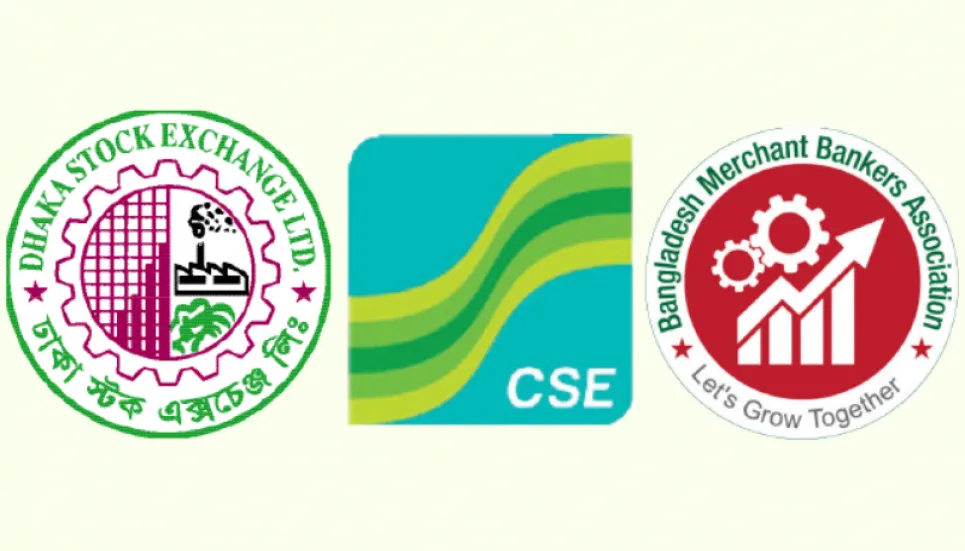Home ›› 13 Feb 2023 ›› Stock

The Bangladesh Merchant Bankers Association (BMBA) urged the National Board of Revenue (NBR) to reintroduce the scope for investing undisclosed money in the stock market with a 5 per cent tax to increase the depth of the market.
They placed the demand while presenting their budget proposals to the exchequer for the upcoming fiscal year 2023-24 at a pre-budget meeting held at NBR’s new headquarters in Agargaon of the capital yesterday.
Representatives from the Dhaka Stock Exchange (DSE), Chittagong Stock Exchange (CSE), and Bangladesh Merchant Bankers Association (BMBA), Bangladesh Insurance Association (BIA), and Bangladesh Association of Banks (BAB), attended the meeting, with NBR chairman Abu Hena Md Rahmatul Munim in the chair.
The BMBA urged the exchequer for a scope to invest undisclosed money in the capital market with a 5.0 per cent tax to increase the depth of the market.
The merchant bankers also requested to widen the tax-rate gap by at least 15 per cent between listed and non-listed companies to woo more companies to the country’s capital market.
“Undisclosed money will play an important role in the country’s economic development. If the whitening scope of undisclosed capital is disregarded, the money could be used for illegal purposes. So, the scope is needed to stop the misuse of that capital and to strengthen the capital market’s depth,” they said.
Currently, listed firms other than banks, insurers, financial institutions, mobile operators, and tobacco companies, issuing shares worth more than 10 per cent, need to pay 20 per cent corporate tax, while non-listed companies pay 27.50 per cent tax.
Moreover, the rate is 22.5 per cent for a listed firm offloading share equivalent to 10 per cent or less of its paid-up capital.
The Chittagong Stock Exchange (CSE) demanded the withdrawal of the tax deduction at source on dividends for the upcoming fiscal.
“The dividend-paying firms already pay tax on their profits; so, the deduction of tax in time of their dividend disbursements creates a double taxation problem.”
If the deduction of source tax is avoided, it would create more scopes for stock investors to get more dividends, the officials of the port city bourse said.
Moreover, the CSE proposed to raise the limit of the tax-free dividend to Tk 1 lakh from the existing ceiling of Tk 50,000.
Additionally, the tax-free cash dividends from mutual funds or unit funds were urged to be capped at TK 50,000, from the existing amount of up to Tk 25,000.
Income from other bonds, such as corporate bonds and government securities, could also be exempted from taxes like zero-coupon bonds to expand the country’s bond market, the CSE said.
Currently, the income earned from zero-coupon bonds issued by any bank, insurer, financial institution, or any other institution with the prior approval of the Bangladesh Bank and the Bangladesh Securities and Exchange Commission remains out of the tax net.
The port city bourse also urged tax concessions from the NBR in the next budget to encourage SME companies to participate in the capital market.
Meanwhile, in its budget proposal for the fiscal year 2023-24, the Dhaka Stock Exchange (DSE) said the source tax deduction on dividends might be considered a final settlement of tax liability.
It also requested the exchequer to lower the tax rate from 20 per cent to 10 per cent on dividends paid to corporate shareholders.
In its budget proposal, the capital bourse asked to widen the rate gap of corporate tax to 12.5 per cent between listed and non-listed firms.
Meanwhile, the corporate tax rate of listed companies was proposed to reduce from 20 per cent to 15 per cent.
On the other hand, Bangladesh Insurance Association (BIA) demanded the cancellation of 5 per cent gain tax against the profits of life insurance policyholders in the next fiscal’s budget.
“As per the Income Tax Ordinance 2014, a 5 per cent gain tax is levied on the profits of policyholders of all life insurance companies in the country. The number of policyholders is falling continuously. So, such tax should be withdrawn for the progress of the sector.”
Most countries in the world, including neighboring India, do not deduct such any capital gain tax, they claimed.
Attending the meeting, representatives of the Bangladesh Association of Banks (BAB) said, currently, listed banking companies are paying a 37.5 per cent tax, while non-listed ones are paying 40 per cent. From the perspective of foreign investors, the existing tax rates are too high and not competitive compared to neighboring countries.
Due to the recent Covid-19 pandemic and the capping of lending rates at 9 per cent, the profitability of banking firms decreased significantly.
Currently, 34 banks and 23 non-bank financial institutions are listed with the capital market.